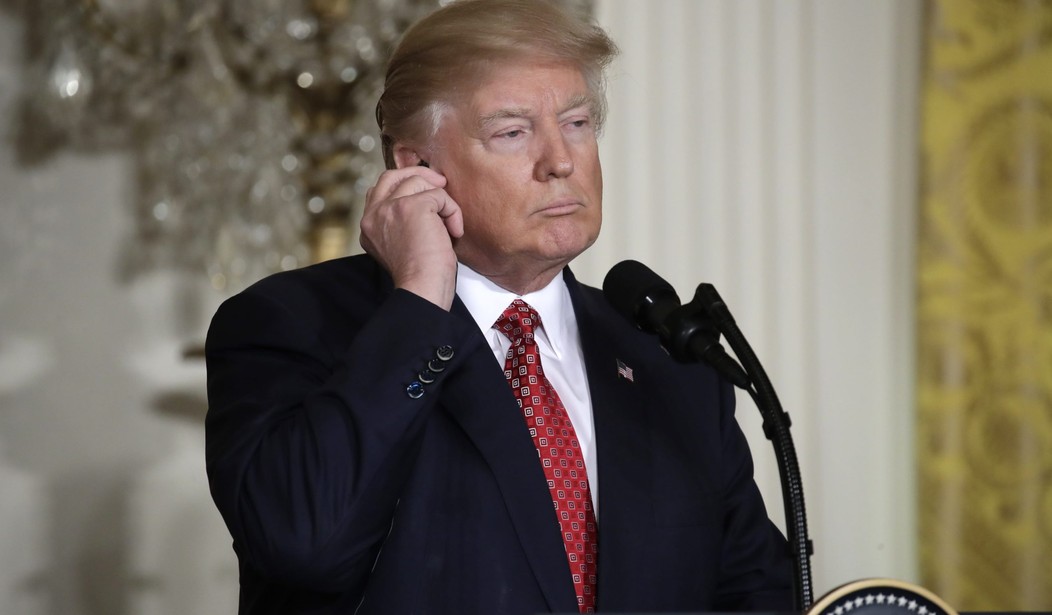President Trump tweeted out on Saturday,
The media has not reported that the National Debt in my first month went down by $12 billion vs a $200 billion increase in Obama first mo.
— Donald J. Trump (@realDonaldTrump) February 25, 2017
Jim Hoft of Gateway Pundit headlined his blog post on this story “Amazing! Trump Cuts US Debt by $12 Billion In His First Month.”
Of course, Jim forgot to mention what policies the president had enacted to cut the $12 billion — probably because there haven’t been any. Are rich people suddenly voluntarily paying a lot more in taxes? Are tax dodgers so inspired by President Trump that they decided to pay what they owe to the IRS? Congress has done nothing. The executive branch has done nothing.
Maybe Treasury Secretary Mnuchin is cooking the books.
But is the drop in the national debt really significant and is Trump right to claim credit?
Probably not in either case.
So what gives? An economist who worked for President Bush explains.
A former director of the U.S. National Economic Council published a hypothetical memo to lawmakers on Saturday advising them to not echo President Donald Trump’s tweet that suggests the national debt is down during his first month.
Keith Hennessey, who was appointed by President George W. Bush, wrote in his hypothetical memo to Congress that Trump was technically correct that the national debt decreased by $19.6 billion from Jan. 20 to Feb. 23. Hennessey, however, added that if Trump had “ended his timeframe one day earlier this tweet would have been invalid and debt would have increased” by $1 billion in “the first month.” He said this is why “analysts look at debt on an annual basis.”
Hennessey said it looked as if Trump got his numbers from Herman Cain, who appeared on “Fox & Friends Weekend” shortly before Trump’s tweet.
“Because of his unique communications advantages, President Trump may be able to get away with making an argument with such a weak foundation,” Hennessey wrote. “You cannot, and you should not place yourself in the position of having to address the intellectual weaknesses described above. ”
Hennessey also noted that former President Barack Obama signed a stimulus package the first month during his presidency and that there was a big difference in the health of the economy in 2009 to 2017.
The former NEC director also wrote that it was “more concerning” that the tweet shows Trump continues to rely on TV rather than his advisers.
“Until his staff figure out a way to ensure he doesn’t make such easily rebutted claims, you should not echo the president’s economic arguments or claims without first verifying both their accuracy and substantive merit,” Hennessey wrote. “This unfortunate situation will persist as long as President Trump continues to take his numbers and policy arguments from TV pundits rather than from Mr. Cohn, Director Mulvaney, and Secretary Mnuchin.”
The national debt fluctuates wildly month to month depending on several different factors including tax receipts, what T-Bills are maturing, interest paid on the debt, and other criteria having nothing to do with who is president. Just remember that a trillion dollars is a thousand billion. Which means that the $12 billion drop in the national debt is a hiccup hardly worth mentioning.
But here’s a counterfactual for you. Would the media have reported on the national debt if it had gone up the first month of the Trump presidency? You can bet the economic ignoramuses who write for liberal blogs would have been all over it, but major media would have ignored the news for the reasons given by Hennessey.
If Trump is going to take a swing at the media over stuff like this, it would be nice if he was sure of his facts.









Join the conversation as a VIP Member